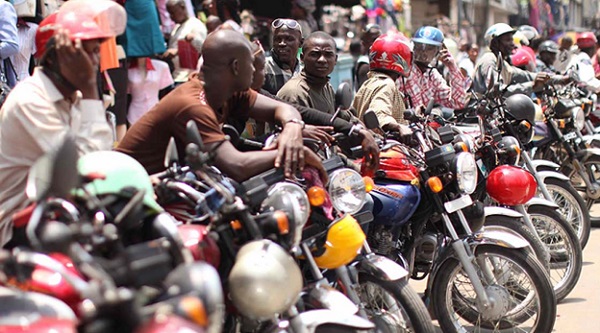
Are there laws regulating Okada riders?
Dear Mirror Lawyer, I have been worried and traumatised by the confidence with which Okada drivers carry four or more persons, including children, on their motorbikes and the boldness with which they speed and weave through traffic, sometimes endangering the motoring public.
Advertisement
Is it the case that the police are asleep or is there no law regulating that kind of behaviour?
Martin Agyekum, Kanda, Accra
Dear Martin, The law regulating the number of passengers motorcycles are permitted to carry, and their overall conduct on the road is the Road Traffic Act, 2004 (Act 683) as amended and the regulations made by the sector minister.
Section 23 of the Act provides that no one shall carry more than one other person on a motorcycle unless it is constructed or adapted for the carriage of more than one person.
In effect, only two persons, i.e., the rider and one other person, could be carried on a motorcycle. In the event of a breach of this provision, i.e., a motorcycle on the road with more than two persons, the rider of the motorcycle and the persons who sit or allow themselves to be carried in excess of the maximum number each commits an offence and are liable on summary conviction to a fine not exceeding 250 penalty units or to a term of imprisonment not exceeding 12 months or to both.
The law also imposes restrictions on the use of bicycles on the roads, except that in the case of a bicycle, the rider shall not carry any other person on the bicycle unless it is constructed or adapted for the carriage of more than one person.
The punishment for carrying a second person, other than the rider, on a bicycle or allowing yourself to be carried on a bicycle not manufactured for more than one person is a summary conviction to a fine not exceeding 100 penalty units or to a term of imprisonment not exceeding six months or to both.
I am aware that some motorists ride their motorcycles dangerously on the roads for sports and recreational purposes, while others do so in the event of a funeral procession, victory parade or protest.
There are strict requirements on how a motorist could use his motor cycle or bicycle on the road. The law clearly says that a person who rides a cycle dangerously or in a careless and inconsiderate manner on a road commits an offence and is liable on summary conviction to a fine not exceeding 250 penalty units or to a term of imprisonment not exceeding 12 months or to both in the case of dangerous riding and summary conviction to a fine not exceeding 100 penalty units or to a term of imprisonment not exceeding six months or to both in the case of careless and inconsiderate riding.
Dangerous riding, which includes danger either of injury to any person or of serious damage to property, is explained to mean the following:
(a) The way the person rides falls below what would be expected of a competent and careful cyclist; and
(b) It would be obvious to a competent and careful cyclist that riding in that manner would be dangerous.
In the case of careless and inconsiderate cycling, the conduct includes riding without due care and attention or without reasonable consideration for other persons using the road or place.
It is clear that provisions have been made by law to take care of the conduct of cyclists on the road as described by you.
Unfortunately, the Motor Traffic Division of the Ghana Police who are to enforce the law are either overwhelmed, ill-equipped or just unprepared to check such recalcitrant behaviour on our roads.
The fact that what you described will not happen in any civilised country in Europe, Asia and the Americas shows the inefficiency of our law enforcement bodies to check such indiscipline.




